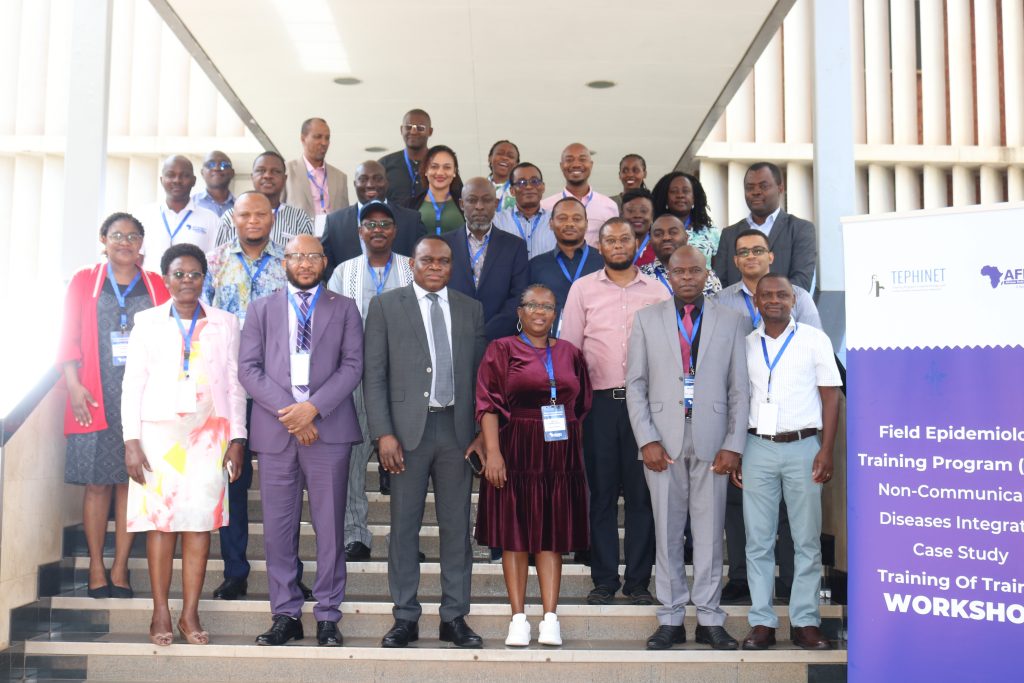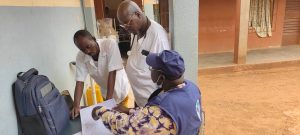African field epidemiology training programs set to enhance curriculum with noncommunicable disease case studies
-
by
AFENET

The situation of Noncommunicable diseases (NCDs) in sub-Saharan Africa is worrying and a cause for concern and action.
The statistics from the World Health Organization (WHO) are telling. NCDs accounted for 37% of all deaths in the WHO African region in 2019, up from 24% in the year 2000. Relatedly, the proportion of premature NCD-related deaths, i.e. deaths between 30 and 70 years of age, in the region, stands at 63.6%, higher than the global average of 41.8% (2019).
Against this backdrop, the CDC office of global NCDs, Training Programs in Epidemiology and Public Health Interventions Network (TEPHINET) and the African Field Epidemiology Network (AFENET), organized a weeklong (May 13-17, 2024) Training of Trainers workshop in Kampala aimed at accelerating the integration of these NCD case studies in existing field epidemiology training programs.
Flagging of the training at the Sheraton Kampala Hotel, which brought together AFENET’s Regional Technical Advisors, Resident Advisors from Advanced FETPs, and Secretariat FETP technical staff, the Director AFENET, Dr Simon Antara underscored the gravity of the NCD epidemic.
From claiming a staggering 41 million lives annually worldwide, representing 71% of global mortality, to imposing a huge economic burden on countries causing and perpetuating poverty and hindering economic development, Dr Antara said the impact of NCDs was simply immense.
He added: “It is estimated that between 2011 and 2030, the global cumulative economic loss from NCDs will be $47 trillion average of 2.4trillion annually (To put that in context, the GDP of Africa is 3 trillion USD. This is about 16 times of Africa’s 2024 GDP).”
With NCDs are set to overtake communicable, maternal, neonatal, and nutritional diseases combined and become the leading cause of mortality in sub-Saharan Africa by 2030, and surveillance for NCD risk factors in the region over the past decade indicating that most adults are exposed to at least one risk factor for NCDs, a sense of urgency abounds.
“Incorporating NCDs in FETPs provides us with an opportunity to equip our residents with the relevant skills to contribute to providing a solution to an important public health issue. I am aware that several programs have NCDs as part of their training. Let us share best practices,” Dr Antara said. “I thank the US CDC, TEPHINET and EMPHINET [Eastern Mediterranean Public Health Network] for the productive partnership of which one of fruits is this workshop.”
Speaking earlier, AFENET’s FETP Technical Lead, Dr Herbert Kazoora, said the CDC office of Global NCDs in collaboration with the CDC Foundation and partners developed several case studies for field epidemiologists to practice public health problem -solving by applying epidemiologic skills to field scenarios.
AFENET brings together field epidemiology training programs in at least 40 sub-Saharan Africa countries.



